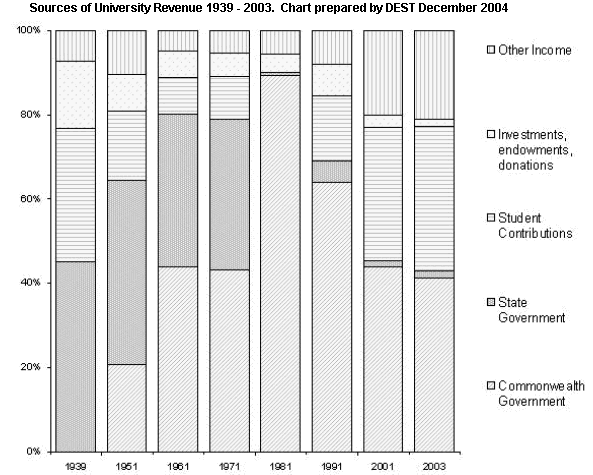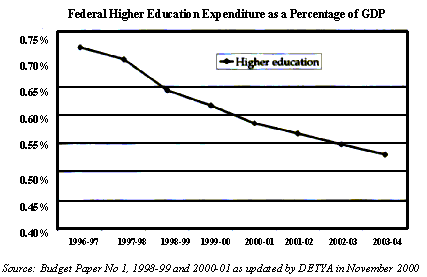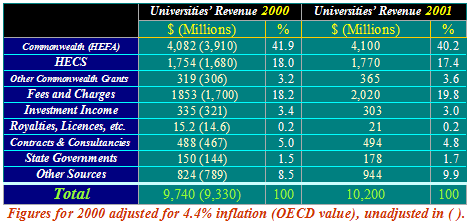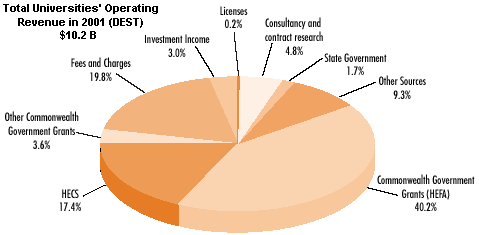|
Editorial-01 May 2005 |
The Progressive "Dysfunctionalisation" of Australia's Public Universities |
 |
With the election of EG Whitlam in 1972 as Prime Minister Kim Beazley, Sr, became Minister for Education.
In 1973 the senior Beazley secured an agreement with the states that the Federal Government would assume full financial responsibility for tertiary education from January 1, 1974. Prior to that the states provided over 50% of university revenue in the early 1950s and still 35% of the total when Whitlam was elected, although by that time the Commonwealth was contributing nearly 45% of the total. It is noteworthy that in what our politicians, whether Liberal, Labor, National, Australian Democrat or Green, refer to as our aspiration for a "Knowledge Economy" the proportion of Commonwealth university funding has dropped to 40% -- 5% less than it was in 1973 before Kim Beazley's father negotiated the agreement for the Commonwealth to take over responsibility for the funding of the nation's public universities.
 |
Furthermore, the Coalition has, through a series of brilliant manoeuvres between 1996 and 2004, reduced its financial commitment to the universities from 0.73% to 0.53% of GDP. Hardly a ripple could be perceived on the sea of voter opinion.
As of 2001 contribution to the revenues for the public universities was divided as shown below.

Now of course the Prime Minister, John Howard, through his Ministers for Education, Science and Training, and Employment and Workplace Relations, Brendan Nelson and Kevin Andrews respectively are working with great diligence to achieve the pièce de résistance, or is it the coup de grâce for the public universities?
Kill compulsory student union fees.
Force the mandatory use of Australian Workplace Agreements onto staff/university agreements to reduce (eliminate?) the bargaining power of staff unions.
Have a greatly increased role in university governance.
Where possible eliminate any responsibility of the states for the universities.
Harold Shapiro is the emeritus president of Princeton University. In a recent issue of Science he reviewed Jennifer Washburn's 350 page assessment of University, Inc.: The Corporate Corruption of American Higher Education. In his review, which was critical but favourable, he considered a number of points which Ms Washburn discussed and two suggestions for improvements that she made:
The book concludes with suggestions for a path forward. Washburn calls for universities to make a renewed commitment to academic values--a call I heartily second. She also offers a set of recommendations that generally increase the authority of the federal government or other third parties. With the exception of a proposal aimed at strengthening conflict-of-interest regulations, I find these unpersuasive and, in many cases, a little naïve.
It is hardly likely that Mr Howard and his lieutenants would agree with Professor Shapiro, but just perhaps Australian academe might consider his assessment a rallying call. If so there is little time left for "personning" the bastions.
Alex Reisner
The Funneled Web
